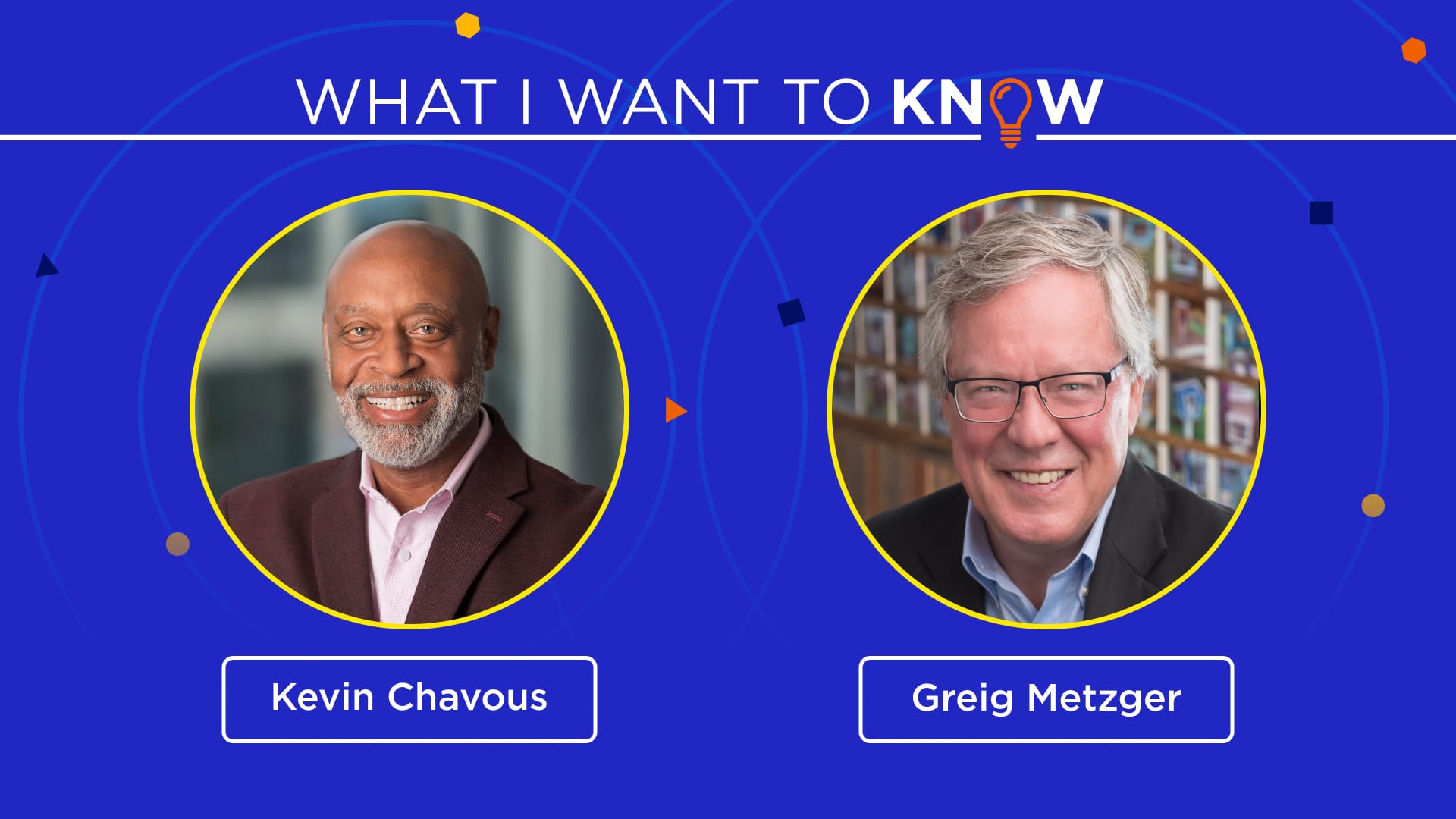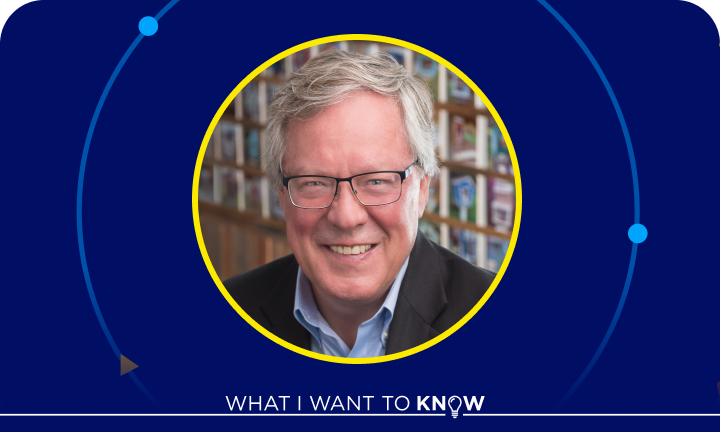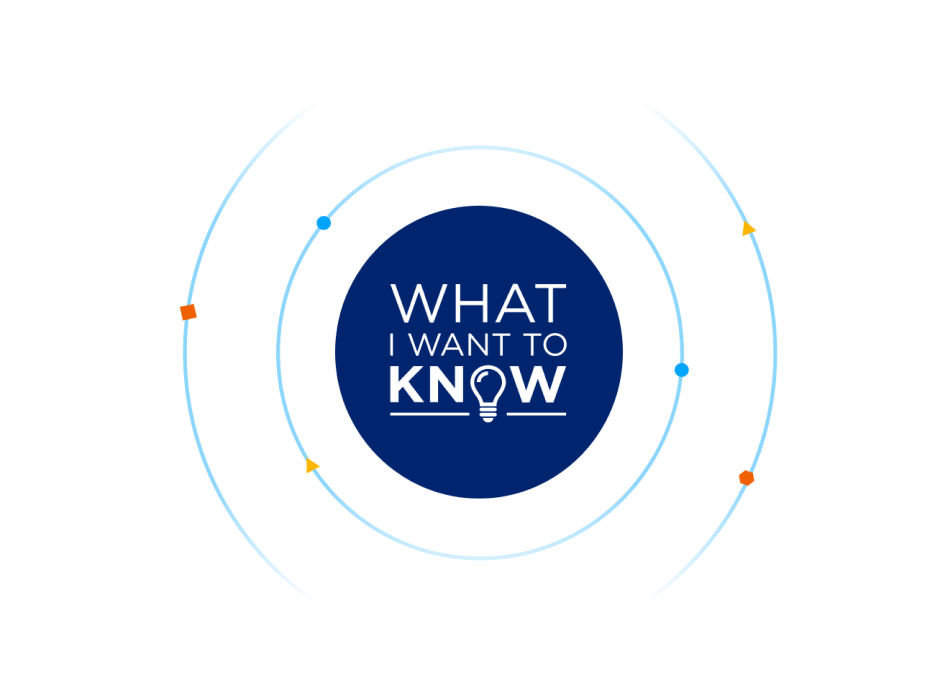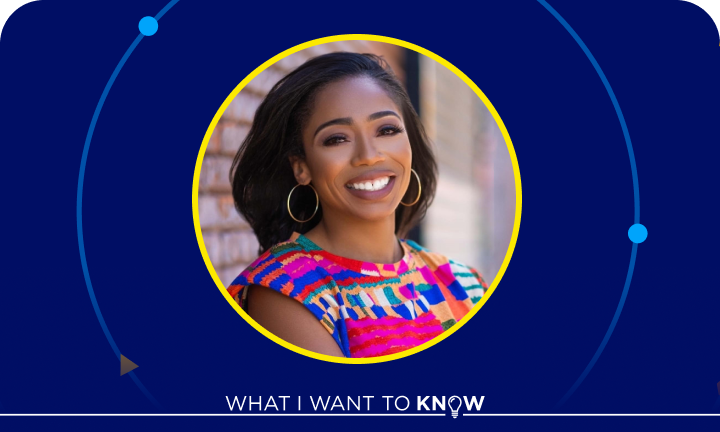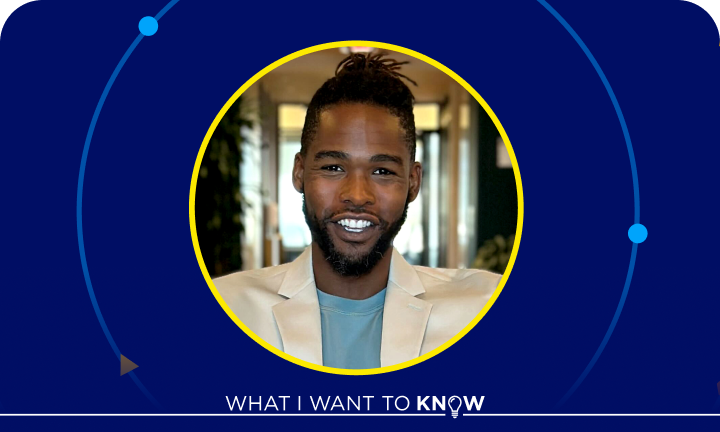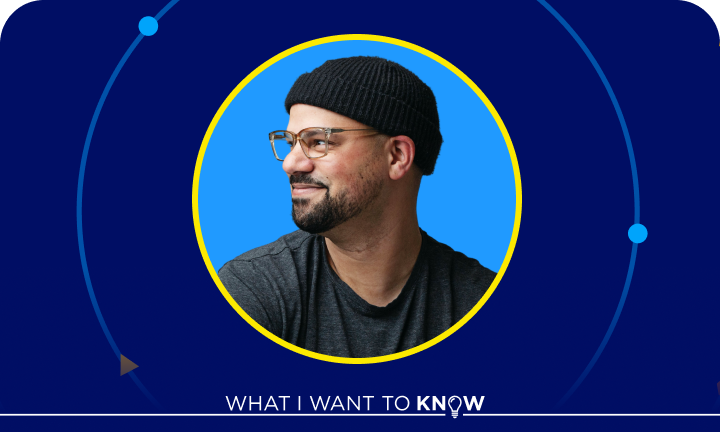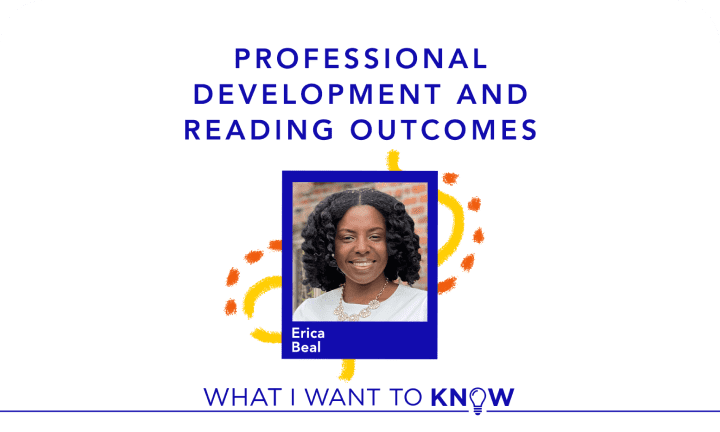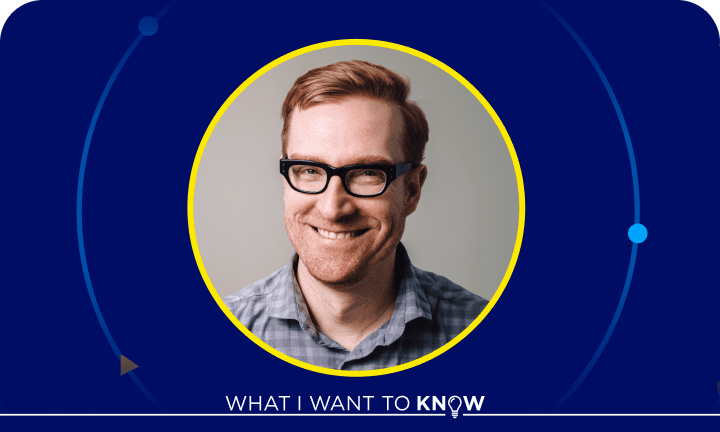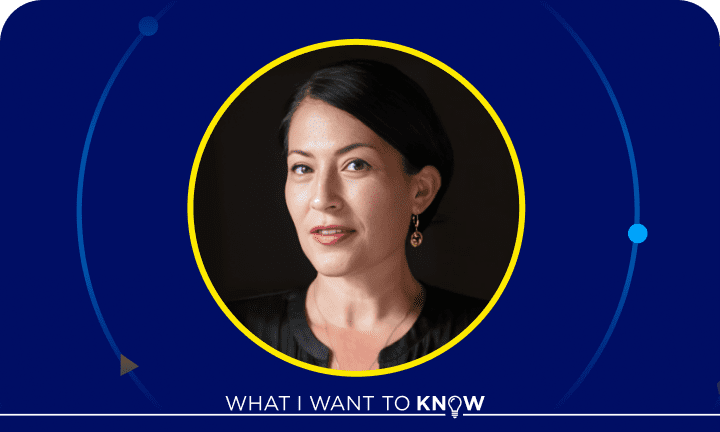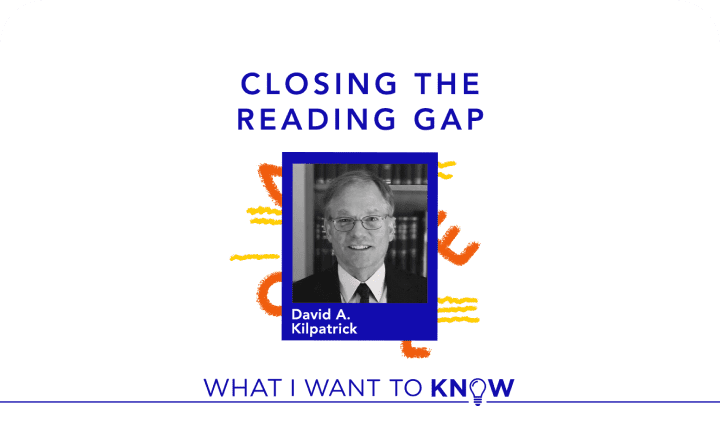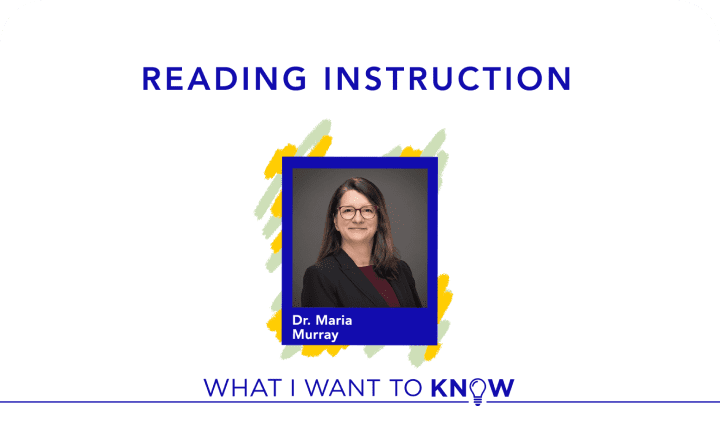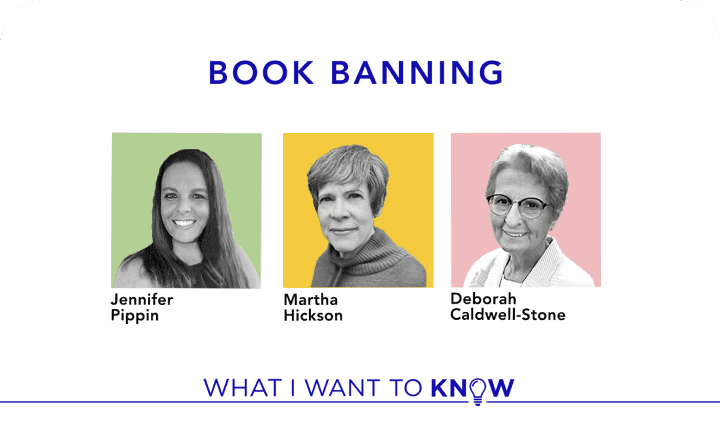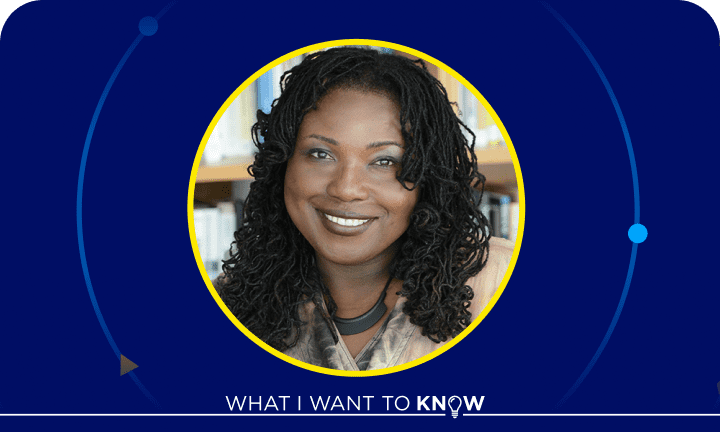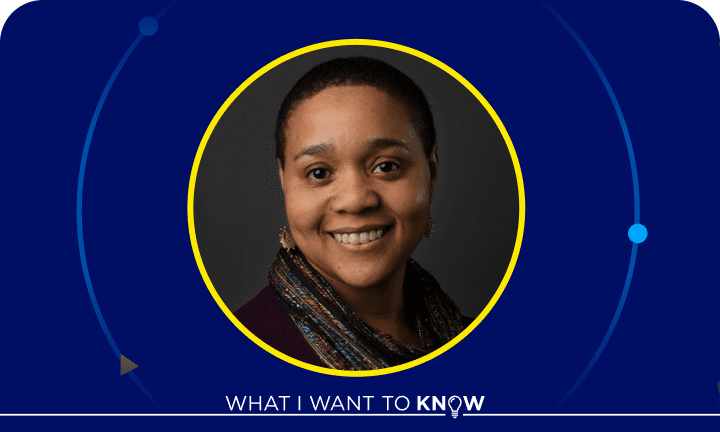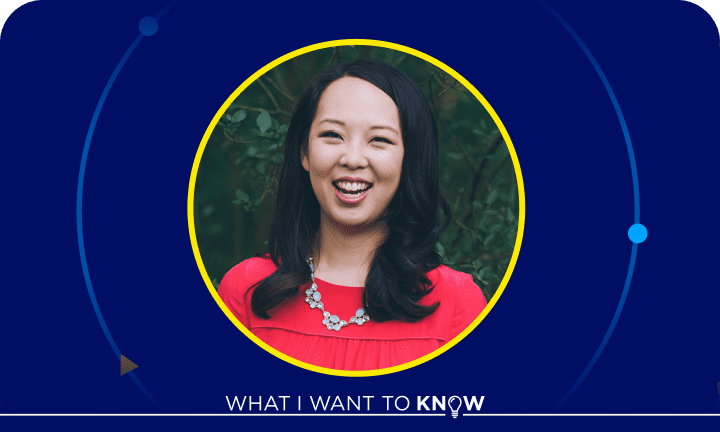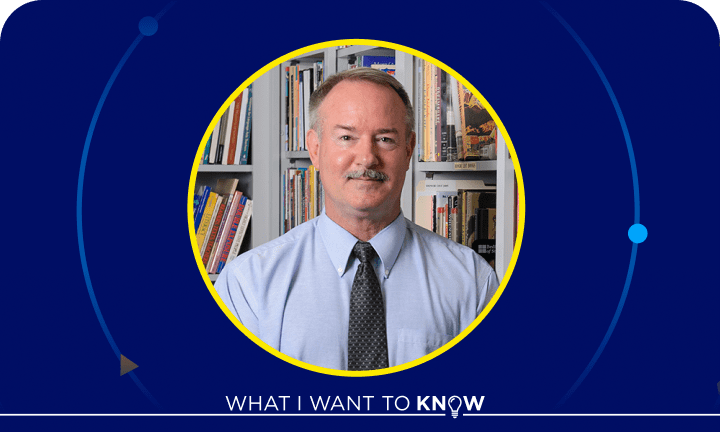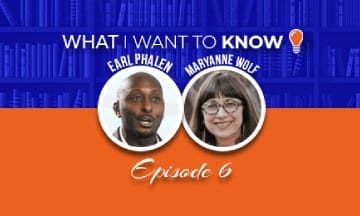March 20, 2024
EP. 146: How can books build community?
During the pandemic, 35% of the world increased their reading habits. And now, from book clubs to #BookTok, people have continued to turn to books as an anecdote to isolation and a way to build community.
Why is reading so transformative? How can we ensure everyone has access to books? And how can books build community?
In this episode, Greig Metzger joins Kevin to discuss how books can build community.
Listen on: Apple Podcast, Spotify
Meet Greig
Greig Metzger is the executive director of Little Free Library, a nonprofit organization dedicated to being a catalyst for building community, inspiring readers, and expanding book access for all through a global network of volunteer-led Little Free Library book-exchange boxes.
Kevin: March is National Reading Month, and “What I Want to Know” is celebrating with some very special guests. Greig Metzger from Little Free Library will discuss how books can build community. Literacy influencer Oliver James will share his inspiring story of learning how to read. Jelani Memory and I will talk about how books can introduce kids to tough topics. And author Alliah Agostini will speak on representation in children’s literature. Educators and parents everywhere want to instill in kids a lifelong love of reading, so make sure to catch these important conversations by subscribing to “What I Want to Know” with Kevin P. Chavous on Apple podcasts, Spotify, or your favorite podcast or social media platform, and visit k12.com/reading for more resources.
Greig: I think personally that’s a huge risk to us, you know, as a society that, you know, that library card that you got. However, you know, people don’t recognize the asset that necessarily is there in terms of a typical whatever your neighborhood library. And I think the role that libraries play or provide, frankly, is undervalued in our society and our communities. And it’s unfortunate.
Kevin: During the pandemic, 35% of the world increased their reading habits. And now, from book clubs to book talk, people have continued to turn to books as an antidote to isolation and a way to build community. Why is reading so transformative? How can we ensure everyone has access to books? And how can books build our communities? This is “What I Want to Know,” and today I’m joined by Greig Metzger to find out.
Greig Metzger is the Executive Director of Little Free Library, a nonprofit organization dedicated to being a catalyst for building community. They inspire readers and expand book access for all through a global network of volunteer-led Little Free Library book exchange boxes. He joins us today to discuss how books can build community. Greig, welcome to the show.
Greig: Thanks for having me, Kevin, and great to be here.
Kevin: Boy, I’m excited to have you here. You’re one of our guests during our special focus on National Reading Month in March. You’re doing a lot of cool work. You obviously have a love of reading, so I want to start there during National Reading month. How did you develop such a love for reading?
Greig: Yeah, that’s a great question. I have to say I’m quite fortunate in growing up being surrounded by avid readers from a little boy. You know, in actuality, my family is originally from the Cleveland area, and my grandmother was a volunteer at a Cleveland public library.
Kevin: Oh, wow.
Greig: And so books were ubiquitous. I mean, they were always, you know, the gift, Christmas or birthday or whatever, you know, always one of those things that my grandmother, we would read together and the like. And then again, sort of continuing, I was fortunate again with my parents, similar way, were avid readers. You know, up until the day my dad passed away, right, he was reading “The New York Times” and all that kind of stuff.
So, you know, for me, it wasn’t anything unusual, right? It was something that you did as part of, you know, family. It wasn’t necessarily a group exercise, but it wasn’t unusual for people to be like in the family room and like somebody is reading a book and someone is reading a magazine and someone is reading the newspaper. And that was sort of standard process, right? It wasn’t anything unique at all.
And so I think that opportunity not only to have the material, so to be clear, right, you need the books to be able to do that, but to have, for me, at that time, role models that reading was sort of an everyday kind of activity and whatnot, I think really is what sparked and created a long-term interest in reading, for sure.
Kevin: You know, I want to talk about how that led you to eventually be the Executive Director of Little Free Library. Talk about Little Free Library and its impact. But, you know, I was going to get into this later, but since you mentioned your entrance into the reading world, it was so similar to my entrance. My parents loved to read. They read everything. And, you know, you model that behavior.
But it’s kind of different now. And the imagery that kids have, you know, when they interact with a lot of their family members is not folks sitting in a quiet space and reading. In fact, the imagery is, you know, these things right here. And one of the things I wanted to talk with you about, and we might as well get right into it, is this whole idea of, is the art of reading and love of reading kind of being pushed aside during this digital age, you know, or is it taking a different form? Because some people say to me it’s still there, it’s just being used in a different way.
Greig: Yeah. I think . . . You know, and to be clear, I am not an academic, nor have the chops to, you know . . .
Kevin: Well, sorry, show is over. We can’t talk.
Greig: But I do think, you know, the benefit of some of those digital forms and the various forms of content allows for the opportunity to shift and have different ways to read, you know, especially in a digital age, you know, the opportunity to have that. I did hear that there are actually more independent bookstores opening up.
Kevin: Yes. Yes.
Greig: And so I think as a market, as consumers, I think to suggest that the printed word is necessarily going to disappear, I think is a bit premature for sure, you know, on that front. And I think, you know, in my mind, it challenges families raising kids, right? And just so many things, right? Again, a fortunate childhood in terms of a mom and dad that had frankly the luxury to be able to spend time to find those quiet spaces, to be able to necessarily read. You know, if you need to be able to catch things as you can in those time frames, that there are brief moments of doing that, you know, I think that’s a great thing.
And so I don’t look at it as necessarily a negative per se. I do think there are some downsides to it if you’re 100% dependent on it. But let’s be honest, right? A book is not an inexpensive thing. So if there are ways to get content digitally at low or no cost to people, you’ve got to say that’s something that’s an important thing to go.
Kevin: Yeah. I think you’re probably right. And, you know, one last thing on that, thinking back to my childhood, I’m struck by the fact that when I was young, you know, there was two prized possessions I remember getting when I was 5 or 6 years old. One is the library card. You know, the other was my mother was active in the NAACP, the NAACP card. You know? And so had my name printed on it. I mean, I’m telling you that library card meant a lot.
So I wanted to segue using that example into the Little Free Library and the whole discussion around libraries as a whole, because they have a different meaning now than when you and I were young. That library card meant so much. But they still are valuable resources. So talk a little bit about libraries generally and then the Little Free Library.
Greig: Well, you hit the nail on head. I mean, more recently, I was looking at an article in the newspaper about the level and the breadth of services that libraries are providing now, right?
Kevin: Yeah.
Greig: And frankly, I mean, I think it’s a little bit not a failure on them. I think it’s a failure on us as a society and other organizations in government that we need to depend on libraries to be able to do some of the things that we’re doing. But putting that aside, you know, I think libraries are critical components for us as a society and as we think about, you know, citizenship and stewardship of our resources and engaging in community and providing that perspective of other perspectives, right, other lives lived are so critical. And that’s frankly, what’s disheartening when we see and hear about in our education systems that too often, whether you call them a library or a media center or whatever word you want to use, those budgets in school systems are being cut and being slashed.
And I think, personally, that’s a huge risk to us, you know, as a society that, you know, that library card that you got. However, you know, people don’t recognize the asset that necessarily is there in terms of a typical whatever your neighborhood library. And I think the role that libraries play or provide, frankly, is undervalued in our society and our communities. And it’s unfortunate that it’s a struggle, right, always to get libraries funded. It seems always the first thing to cut, the first thing to be, you know, like we don’t need more hours and all that kind of thing.
Kevin: And you know what’s interesting with Little Free Library, you’ve taken a different approach to your organization, is you’re going to go where the people, the kids are and make it easier so that they don’t have to go to, you know, two or three, four blocks or a mile or whatever to the library. Talk a little bit about those services, because we know about it, we see it, but you are driving it. And I always think that’s one heck of a trust factor to begin with.
Greig: Sure. Sure. Well, I think stepping in a Little Free Library, I mean, in our mindset, you know, fundamental to our mission and what we believe that everyone should be able to find a book that excites them, that’s personally relevant and motivates the individual to necessarily read. And that access point, right, shouldn’t be limited about where you live or who your parents were or where you were born and all those kinds of things.
So for us, I mean I mentioned this a little bit earlier about my fortunate set of circumstances being raised. You know, there are a lot of people, moms and dads, I mean, they’re not working nine to five, right? I mean, they have all kinds of hours and shifts. So our belief, fundamentally, is, you know, the benefit of a Little Free Library and the book sharing box is it allows for 7 by 24 access. Now, to be clear, right, it doesn’t represent the curated collection that a public library necessarily provides.
But when we talked a little bit about that reading process, we talked a little bit about that connection and sharing as a family. I think that’s another thing that the Little Free Library does provide, especially for children, is that opportunity for moms, dads, caregivers, what have you to also demonstrate and model behavior around reading and how it’s an important thing, it’s a valuable thing. And being able to choose and find a book that resonates with you, that’s an important thing.
And so, you know, our goal is to, you know, basically put a Little Free Library within walking distance of everybody. You know, we’ve got a long way to go necessarily to doing those kinds of things. But I think that access point, right, and that connectivity and being part of a community of readers is a critical, you know, very important aspect of what we try to do here at Little Free Library.
Kevin: Now, you’ve got a long way to go, but you’ve provided, I think, over 300 million books. You’re on seven continents. And the response has been overwhelming. The system is you have a little book sharing kiosk, you know, stand. And do you find that people do a good job of taking the books and returning them?
Greig: Yeah. You know, I mean, like anything you mentioned earlier, there’s a fair amount of trust, and that’s absolutely true. And I will not say that there isn’t circumstances of vandalism and that kind of thing. And there definitely have been locations that have been abandoned. But we always recommend, you know, to any organization or individual that’s having a Little Free Library is to introduce it into the neighborhood and the community and build that common sense of ownership and responsibility for the Little Free Library. And we found when those instances take place, that, in general, they become self-sustaining. Now, in some instances where, you know, resources are more limited, we work with those locations and those organizations, and typically, they’ve come through our granting process, where we figure out how to get them ongoing support in some way, shape, or form.
And, you know, we mentioned, you know, libraries to begin with. One of our best partners are public library systems that help support individual libraries in communities that are near their locations.
Kevin: I want to ask you about this idea of book-reading libraries being a way to build communities as an antidote to isolation. We saw during COVID, as a result of COVID and the pandemic, that many more kids and people in general feel isolated. There’s more mental health challenges. And on the one hand, when you sit still and you’re quietly reading, some might think that that would fuel isolation. But now we’re seeing it actually helps, as I said earlier, an antidote to isolation, because you do have the still time. You’re able to exercise your brain. You’re able to take in new information. So talk a little bit about that, because that’s one of the things that you’ve seen in the work you do in providing books to people who have been going through some of those challenges.
Greig: Yeah. You know, you mentioned COVID. I think for us, one of the things that we saw is a variety of Little Free Library installations and the interesting dynamic of how sometimes the usage of those changed, sometimes of what things were there. I mean, people were putting in more than necessarily books. And one of the things that we really found and through that horrific time frame is the Little Free Library is what we called sort of a beacon that people cared, right? The community cared. And what it allowed for, you know, in a place where you weren’t able to connect with one another, is sort of that stationary point, that connection point, that allowed that happening through books. And so, you know, frankly, it was a visible sign that in spite of the isolation, in spite of everybody having to be holed up and home, there was a place and there was a demonstration that neighbors and community members and the like still were concerned about each other and shared that concern by providing books to read or other resources through, you know, Little Free Library book exchanges.
And I think, you know, in our mind, and I mentioned this earlier, I think the opportunity to provide a variety of books can only go and create empathy for different perspectives, right? And you have that opportunity to have what I call sort of that spark of commonality, right? That thing that’s like, “Oh, I remember that,” or, “I recognize that,” or, “That happened to me,” or, “I felt that way.” And we take those things out of the structure of, you know, kind of race and economic, you know, status and geography and all those kinds of things and really end up creating that common connection that allows people to feel closer together, even if it’s just via reading necessarily a book.
Kevin: You know, Greig, during my research of you, I was fascinated by an interview that an elementary school kid did of you from Ohio . . .
Greig: Right. Right.
Kevin: . . . which is actually pretty cool. And the kid was great. He handled reading his script. And he said, “I’ve got three questions.” You know. But one of the questions centered around, you know, this notion of books building a community. And I was intrigued by the fact that your organization had this program relating to dads reading with their kids and the involvement of fathers, you know, reading. So talk a little bit about that, because I do think that, you know, you and I shared our experience with, you know, our parents and reading with them and the modeling that came from that. And I was struck during that interview with that young boy how you all have shaped that program.
Greig: Sure. No, I think part of that is what we found with Little Free Library is it’s a platform and it’s the ability to partner with a lot of things. So in full candor, that activity is in partnership with another organization that’s doing things. And again, it goes about a little bit of figuring out the community, the community needs, understanding what those are, and by that is like what types of books, right, and a focus in those instances on making sure the majority of the books were represented of people of color and represented in that community and that kind of thing. And then, you know, working with school partners, frankly, to connect with dads in a promotional program and, you know, making it a celebration, right, you know, in terms of doing activities, in this instance, dads reading with their kids. I wouldn’t say making it a contest necessarily, but it was, again, celebrating that activity and using the access to books to be able to supplement that.
You know, again, unfortunately, school libraries are not open all the time. So the opportunity to find a book to share and read via another, you know, distribution point, in this case the Little Free Library, kind of, you know, prevented those excuses, right? There is no excuse, right? Here’s the opportunity to necessarily find it.
So it’s a great example of how we try to, you mentioned community, partner with the needs in those communities as opposed to having a one-size-fits-all sort of solution. We really believe in understanding the desires and goals of the communities or the individuals that are involved to understand and create something that resonates with them and is a solution for them.
Kevin: So a couple more questions, Greig. One is we talked a little bit about the pandemic and just the overall impact. As horrific as that was, it’s had interesting impacts on all of us. Some have led to changes that needed to take place, and some have exacerbated challenges that were pre-existing. But as it relates to the work you’re doing and the various places where you offer the book sharing experience to community folks, what impact has COVID had on your work and your impression of sort of the reading public?
Greig: Well, I will say without a doubt, during the pandemic, interest in Little Free Library and book sharing boxes, you know, frankly, took off, partly because people were locked in. I think more to the point, what we have found over the last few years is, you know, the Little Free Library and that access to books in a community, it’s a tool in the toolkit. So we’re working with a variety of different organizations that have community engagement goals and use books and reading and literacy as one of those factors in creating greater connections.
And so it’s sort of like the standard sort of things, no surprise, public library systems and educational systems. But we also see other literacy organizations, other fraternal organizations, other public service organizations. We see healthcare organizations. We see parks and rec organizations. And all of a sudden, I think through the pandemic experience of having to be focused and finding those individual activities that one can necessarily do, that it’s opened up the minds of other institutions about this activity could be something that we use as part of our greater goals around either, you know, engagement of citizens or engagement of youth or volunteerism or that kind of thing.
It’s really been kind of, in my mind, fascinating how that has evolved over the last couple of years. And I do think that the pandemic opened that up as like, “Well, wait a minute. This is an interesting thing going on. How do we use that in our organization?”
Kevin: Yeah. And that’s really a great point. And that leads to the last question. This is what I really want to know. Following up on what you just said, Greig, what can we do to further kids’ interest and engagement in books? Because you talked about the book sharing approach as a way to give material and make it easier for kids to get. What other things can we do, particularly post-pandemic, in this digital world, to really make kids aware of how much fun it is to be an avid reader?
Greig: Right. No, absolutely. Well, I’m going to say, first of all, there are a number of wonderful organizations across our country that provide book access and books to individual homes and households. So if your listeners are any way, you know, prepared financially to support some of those aspects of things, I think that there’s a huge opportunity to do that because I think, again, you can’t get excited about something if you don’t have it, right? And so there’s definitely necessarily that.
I think, you know, I would also say that there are a variety of digital opportunities as well, and I encourage people to, you know, take a look and see what there’s there. Many of those are free.
You mentioned your library card. I mean, I think, you know, that’s the key. Thankfully, library systems are now, you know, getting out of the fine business and all of that. But I think as a parent, as an adult, depending whether, you know, promoting going to your library, right? Volunteer there. Along those lines, I think, you know, we talked a little bit about economics and financial, you know, stress of those institutions. One of the ways you support that or mitigate that is by supporting them, right? Get out and vote, right?
Kevin: Let’s use it.
Greig: So, you know, those kinds of things. So I think, you know, I would encourage anybody in terms of creating that excitement for children in reading, if you don’t necessarily have kids of your own or, you know, nephews or nieces or that kind of thing, you know, how can you as a community member support the people that are doing that? Whether they’re educators, whether they’re librarians. You know, and then I would say if you do have children or nieces and nephews or whatever, I don’t know, buy a book,. What book that you enjoy, right, share that book with somebody else. You know, it’s funny, we talk about book sharing, right, and we get hung up a little bit in doing that through the platform or the box. It’s a Little Free Library book sharing box. But I also encourage people. It’s like, “You know what? You don’t need the box to share a book.” Right? You can share that book with an individual, a friend, a neighbor, son, daughter, niece, nephew, that kind of thing. So encourage people to do those kinds of things.
Kevin: Well, Greig Metzger, thank you so much for joining us on this special episode during National Reading Month here on “What I Want to Know.” Thanks for joining.
Greig: Thank you.
Kevin: Thanks for listening to “What I Want to Know.” Be sure to follow and subscribe to the show on Apple Podcasts, Spotify, or your favorite podcast app so you can explore other episodes and dive into our discussions on the future of education. And write a review of the show. I also encourage you to join the conversation and let me know what you want to know using #WIWTK on social media. That’s #WIWTK.
For more information on Stride and online education, visit stridelearning.com. I’m your host, Kevin P. Chavous. Thank you for joining “What I Want to Know.”
About the Show
Education is undergoing a dramatic shift, creating an opportunity to transform how we serve learners of all ages. Kevin P. Chavous turns to innovators across education, workforce development, and more to ask: “How can we do better?”
Related Podcasts
Listen to more podcasts about this topic.
Featured Resources
Discover more resources that address the topics impacting students, families, and educators today.
